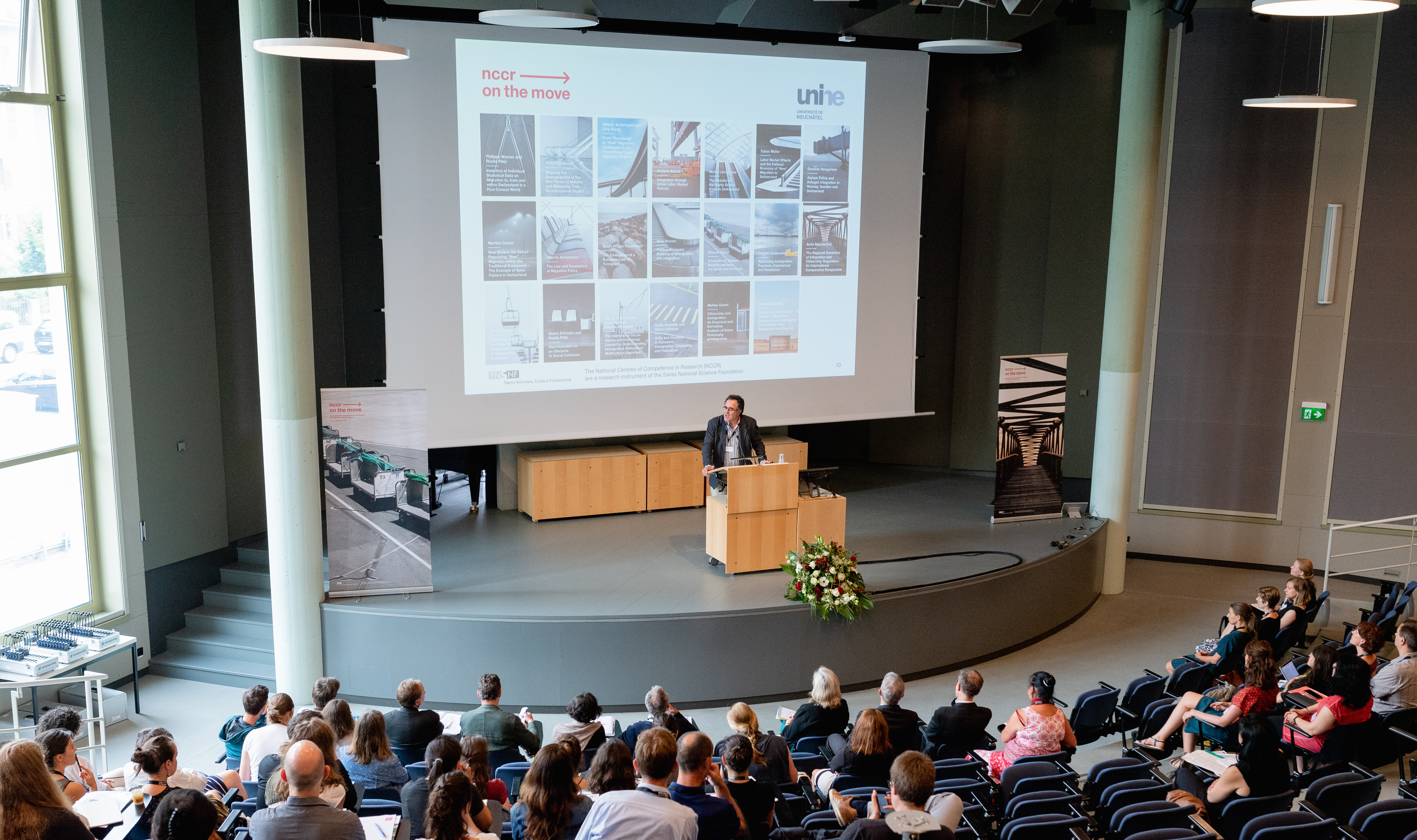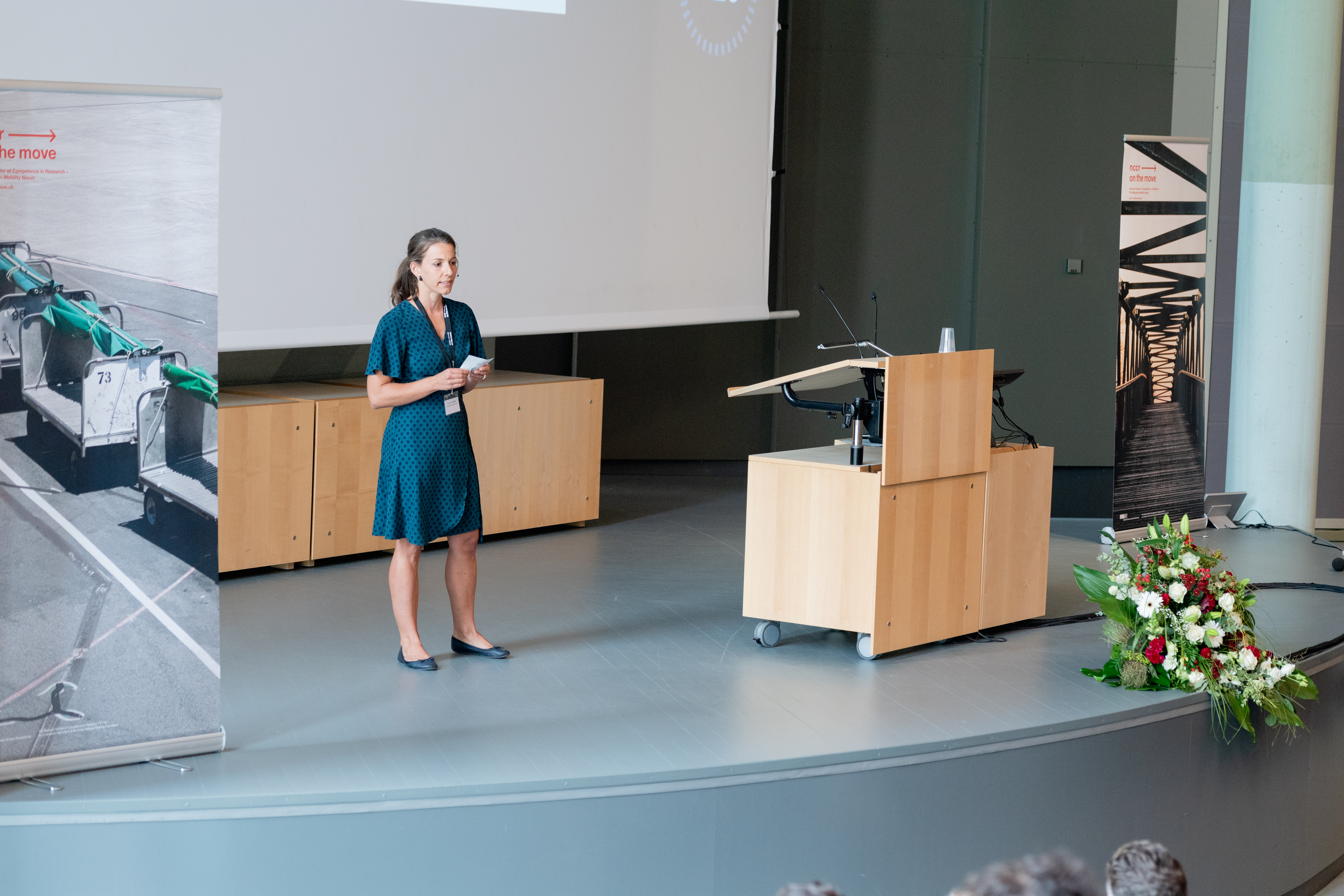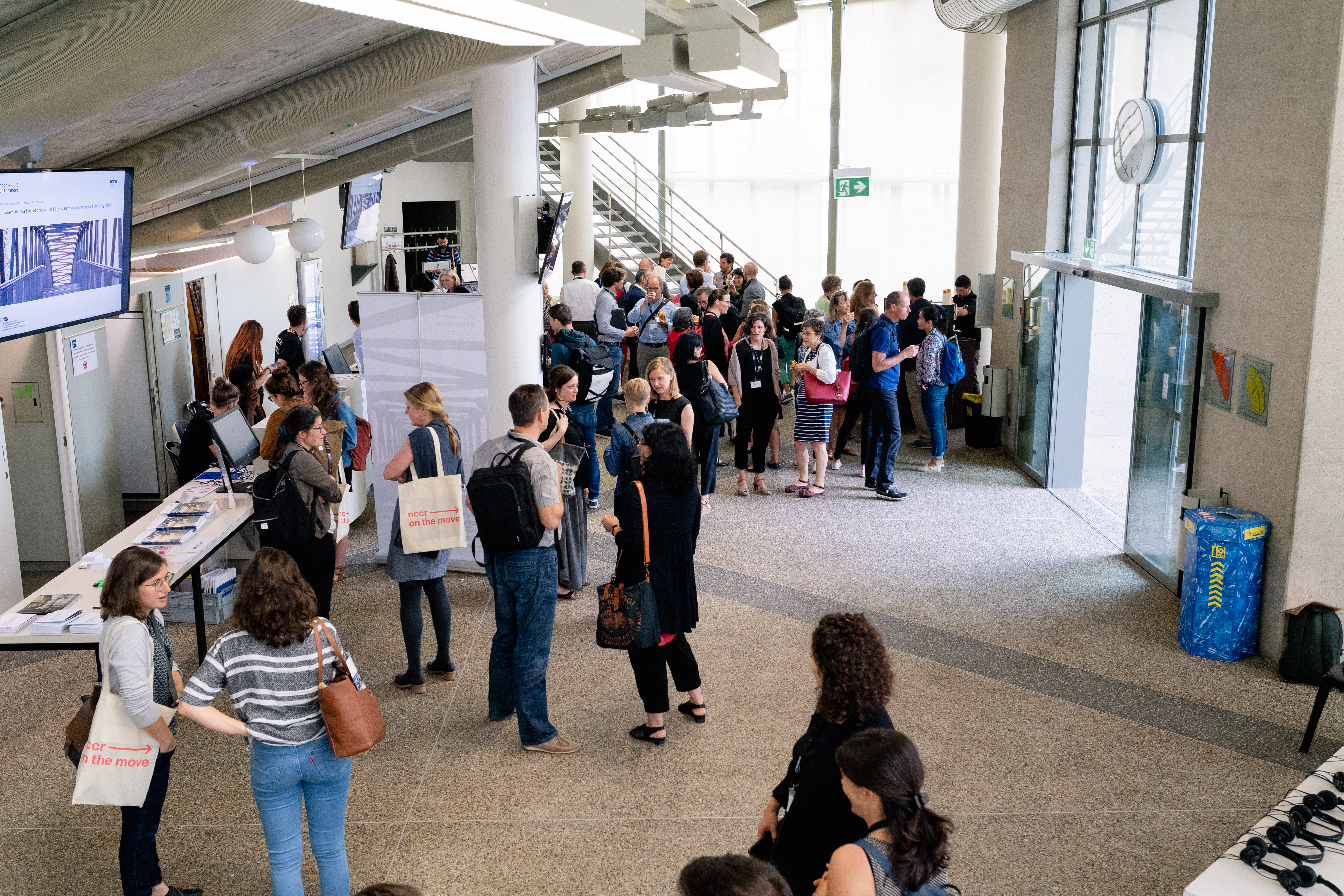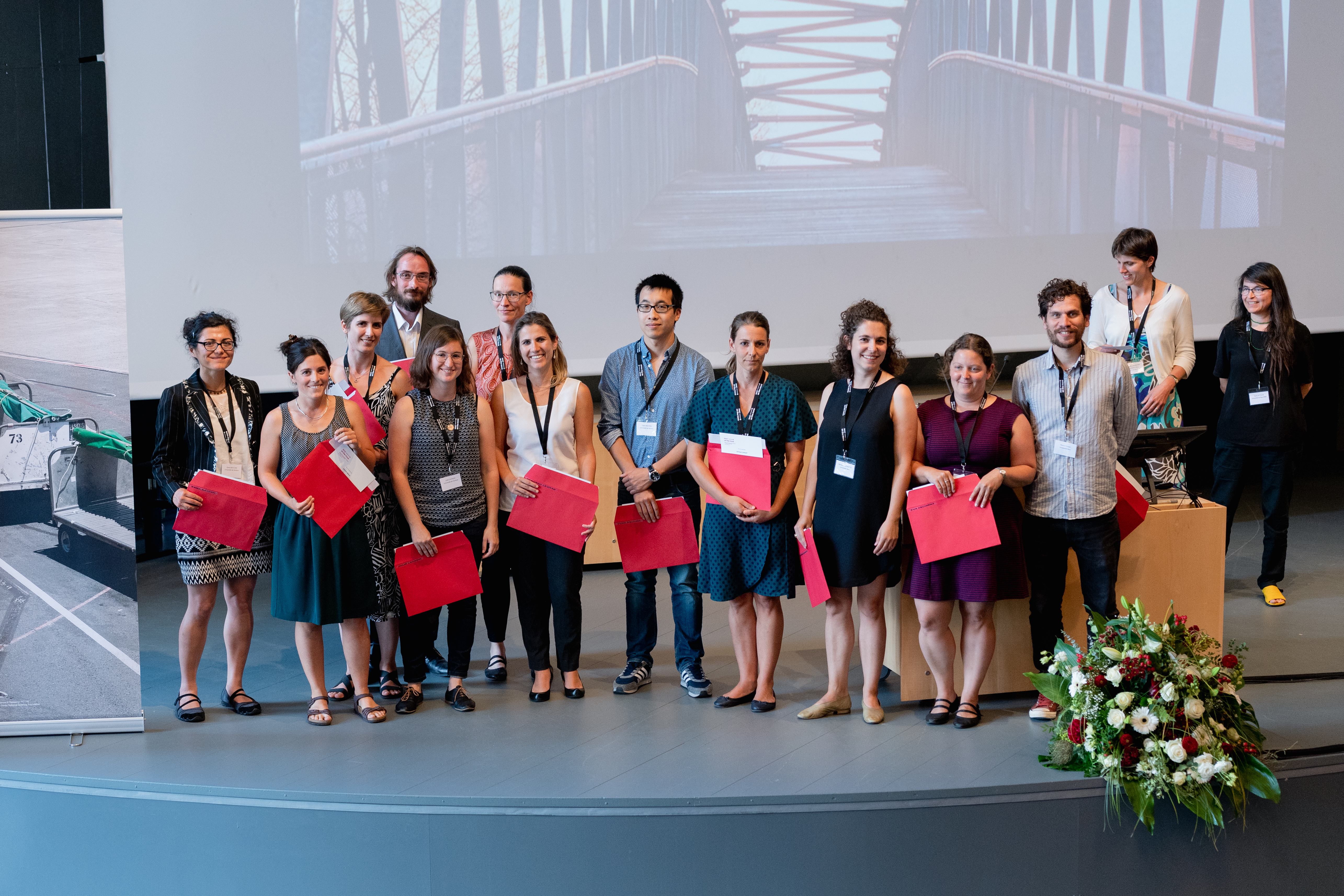Balade dans le paysage migratoire Suisse – Streifzug durch die Migrationslandschaft Schweiz
An Epilog

On Friday 29 June 2018, the nccr – on the move celebrated the conclusion of Phase I with a full-day event hosted by the University of Neuchâtel. About 80 people between academics, journalists, experts and policy-makers participated in the event, which was an opportunity to debate the main topics of research covered by the nccr – on the move since the beginning of the projects four years ago and officially kick-off the next phase of the nccr – on the move (2018-2022).
In his opening speech, the Director of the nccr – on the move Gianni D’Amato, explained that migration is a global issue, which needs to be addressed both locally and internationally. The proposition that mobility amounts to a large-scale threat is gaining ground and has dominated virtually every political campaign during the last years. In this context, the scientific community is called to provide sound analyses of the processes and realities of migration in the 21st century. The nccr – on the move will continue to inform political debates through in-depth analysis, reliable data and concerted efforts to link Swiss dynamics to European and global trends.
 The opening speech of the Director of the nccr – on the move, Gianni D’Amato.
The opening speech of the Director of the nccr – on the move, Gianni D’Amato.
Showcasing one of the nccr – on the move innovative practices of knowledge transfer, Joëlle Moret presented the Migration-Mobility Indicators. This interactive tool delivers simple and accessible facts and figures on the migratory landscape in Switzerland. It is now complemented with a set of additional resources that aim at countering widespread preconceptions about migrants and refugees. These resources are the six clips «Overcoming Preconceptions» and the online trivia that users can access to test their knowledge of migration and mobility in Switzerland.
Since the promotion of young researchers is an essential pillar of the nccr – on the move, seven doctoral and postdoctoral students introduced their research during the day. The presentations were based on an original format, as they could only include one image and had a time limit of 180 seconds. The topics covered in these presentations offer an overview of the different migratory realities in Switzerland: the experiences highly skilled migrants (Metka Hercog, Laure Sandoz), the situation of international students with or without a permit to stay (Annique Lombard, Katrin Sontag), discrimination on the Swiss labor market (Eva Zschirnt), the application of the law in case of international marriages (Rorick Tovar) as well as integration and federalism in international comparison (Lorenzo Piccoli). The presentations were assessed by a jury composed of two journalists and one expert (Christoph Keller, Chantal Tauxe, Inés Mateos) and two members of the International Advisory Board (Pieter Bevelander and Jim Hollifield). The jury awarded the prize for best presentations to Katrin Sontag and Lorenzo Piccoli. The presentations will soon be made available on our Youtube channel.
 Doctoral student Annique Lombard delivers her 180 seconds presentation.
Doctoral student Annique Lombard delivers her 180 seconds presentation.
During the day, nccr – on the move researchers discussed their work in six roundtables covering different topics, from the historical trends of mobility in Switzerland (Philippe Wanner; Gianni D’Amato; Francesco Garufo), the global and European governance of migration (Sarah Progin-Theuerkauf; Marion Panizzon; Philip Hanke), the political-economic analyses of integration and attitudes towards migrants (Michaela Slotwinski; Dominik Hangartner; Tobias Müller), the different facets of inclusion and exclusion (Matteo Gianni; Verena Wisthaler; Stefanie Kurt; Christin Achermann), the inequality on the labor market (Giuliano Bonoli; Rosita Fibbi; Didier Ruedin; Metka Hercog; Laure Sandoz), the transnational mobility and diversity (Janine Dahinden; Tania Zittoun; Yvonne Riaño; Mihaela Nedelcu). During the discussions, the main findings of the nccr – on the move projects were presented. The final factsheets with the main results and key messages for decision makers of the projects are available on each project’s website.

Conference participants chat during a break between the roundtable sessions.
At the end of the afternoon, the PhD students who have successfully completed the Certificate in Migration Studies received their diplomas. They were introduced on the stage by the speeches of the Education and Career Officer of the nccr – on the move, Raquel Delgado Moreira, one representative of the students, Barbara von Rütte, and one member of the Education and Training Commitee, Tania Zittoun.

The cohort of students who received the Certificate in Migration Studies: from left to right, Esma Baycan, Camilla Alberti, Laure Sandoz, David de Groot, Jyothy Kanics, Deborah Levitan, Tuan Nguyen, Annique Lombard, Barbara von Rütte, Eva Zschirnt, Rorick Tovar. On the back, Nicole Wichmann and Tania Zittoun.
The event was followed live. The related tweets can be retrieved under the hashtag #nccr29june.
The nccr – on the move is launching Phase II. On September 13 and 14 the University of Neuchâtel will welcome the third Graduate Conference on Migration and Mobility Studies, targeting young migration and mobility scholars who will present and discuss their work. This year, about 50 researchers will have the opportunity to present their work and share ideas. The program will be available soon. One week later, on September 20, the nccr – on the move will be at the Museum Gutenberg in Fribourg for an Expert Exchange Roundtable in French and German on the topic ‘On l’appelle la « deuxième génération »: trajectoires entre discrimination, succès et négociation des appartenances’ – ‘Man nennt sie die «zweite Generation»: zwischen Diskriminierung, Erfolg und Aushandeln der Zugehörigkeit’.
Lorenzo Piccoli
Network Office, nccr – on the move

